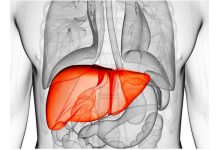Africa-Press – South-Africa. South Africa has an extensive childhood vaccination programme, but some children still slip under the radar.
Under the Expanded Programme on Immunisation (EPI), the health department ensures that children receive all their vaccinations.
Western Cape schools to be used as Covid-19 vaccination sites for pupils
The programme aims to ensure that 90% of all children are fully immunised by the age of one year.
Some children’s vaccinations include two doses for measles, chicken pox and hepatitis A.
A study by the health department found that 83.9% of the children in its survey had received all basic vaccinations up to the age of one year:
Researchers said that, of the 17 180 children, aged 24-35 months, whose vaccination cards were seen by the interviewer, 76.1% were fully vaccinated and had received all 14 doses from birth to 18 months.
The below-par vaccination rates pose a risk to public health.
According to the National Institute for Communicable Diseases (NICD), the Tshwane district recorded six laboratory-confirmed measles cases between May and July.
“Four of the six measles cases detected had an epidemiological link to the measles outbreak reported in the Tshwane district. Two laboratory-confirmed measles cases had no epidemiological link to the measles outbreak.”
As a result of the outbreak, Gauteng health department officials conducted a measles vaccination campaign, which targeted children under 15 years old in schools and daycare centres in the area where the measles outbreak occurred.
The NICD said:
According to the researchers, in the department’s 52 districts, coverage estimates ranged from 53% to 100%.
The proportion of children fully vaccinated at nine months – having received all vaccine doses, except measles 2 and hexavalent 4 – was 83.9%.
Only seven districts – Umzinyathi, Cape Winelands, Thabo Mofutsanyane, Frances Baard, Namakwa, Central Karoo and John Taolo Gaetsewe – managed to achieve the national target of 90% of children fully vaccinated by one year.
All districts, except John Taolo Gaetsewe, had a proportion of unvaccinated children.
The researchers identified 4.3% of children as unvaccinated.
The researchers also found that children born at home were four times more likely to miss at least one vaccination dose than those born in a public health facility:
Children from households that reported not aligning to any religious beliefs were 47% more likely to have missed vaccine doses.
The researchers recommend the EPI invest in a robust health facility and community-based interventions, including the use of mainstream and social media platforms to increase vaccination coverage across all districts.
“Special focus must be given to Pixley ka Seme, OR Tambo, Capricorn, Fezile Dabi and Ilembe, where coverage was below the anticipated national coverage of 65%. Community healthcare workers should become more involved in the EPI programme; they could help to raise awareness of the importance of immunisation and trace defaulters.”
They also recommend that addressing a shortage of vaccination stocks might help increase coverage.
For More News And Analysis About South-Africa Follow Africa-Press






